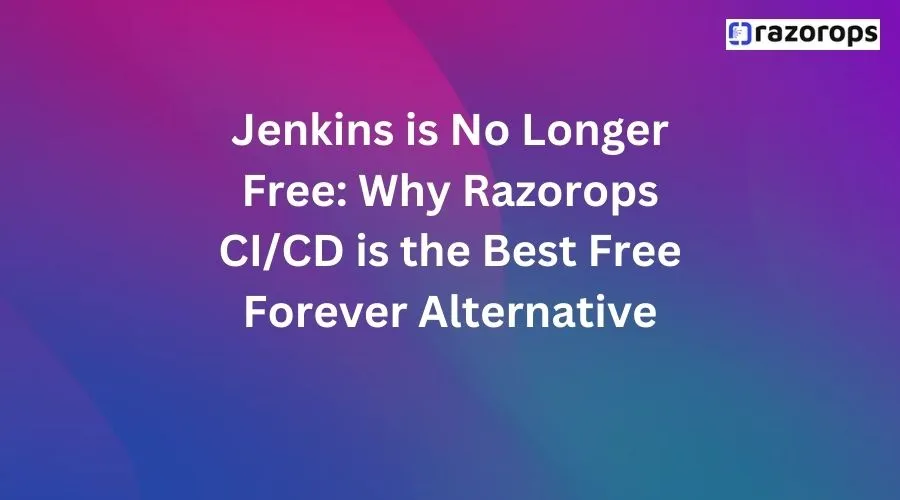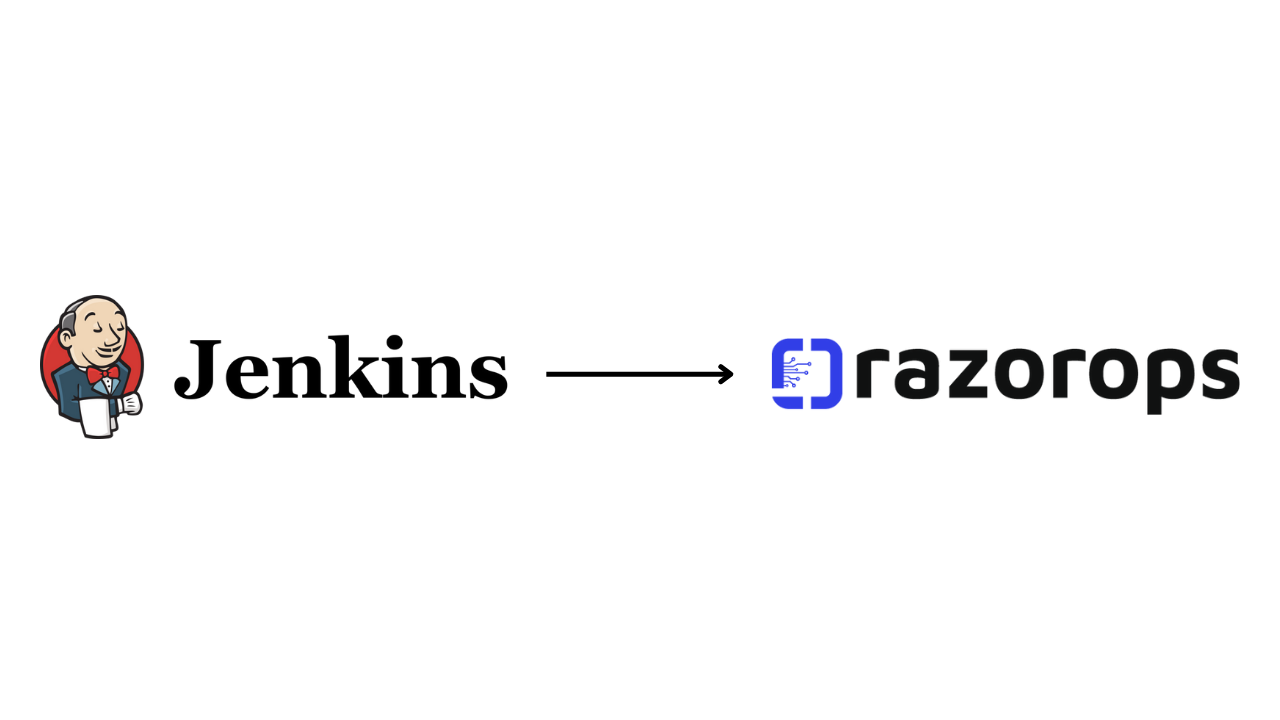Jenkins is No Longer Free: Why Razorops CI/CD is the Best Free Forever Alternative

Introduction
For years, Jenkins has been a staple in the world of Continuous Integration and Continuous Deployment (CI/CD). Its open-source nature and extensive plugin ecosystem made it a go-to choice for developers and organizations worldwide. However,Jenkins no longer being free, prompting many to seek alternative solutions. Enter Razorops, a CI/CD platform that offers robust features and a commitment to being free forever.
Jenkins is No Longer Free
Jenkins has long been celebrated for its flexibility and extensive community support. However, maintaining and scaling a Jenkins setup often required significant time and resources.
The Implications
- Increased Costs: Organizations now need to budget for Jenkins, which may not have been anticipated in their financial planning.
- Resource Allocation: The need for dedicated resources to manage and maintain Jenkins can detract from core development activities.
- Search for Alternatives: The shift has triggered a need for cost-effective alternatives that do not compromise on functionality or reliability.
Understanding the True Cost of Jenkins Open Source
While Jenkins is renowned as an open-source CI/CD tool, it’s essential to understand that “open-source” does not necessarily mean “free of cost.” The term “open-source” refers to the availability of the source code for use, modification, and distribution, but it does not account for the operational and management expenses that come with running Jenkins in a production environment. Here’s a breakdown of the costs associated with using Jenkins:
1. Infrastructure Costs
- Hardware/Cloud Resources: Running Jenkins requires physical servers or cloud instances, which come with their own costs. Whether you are self-hosting on physical servers or using cloud services like AWS, Azure, or Google Cloud, there are expenses related to computing power, storage, and network bandwidth.
- Scaling Infrastructure: As your projects grow, so do the requirements for more powerful and numerous servers. This scaling incurs additional costs.
2. Maintenance and Management
- System Administration: Jenkins needs regular maintenance, including updates, backups, and troubleshooting. Employing system administrators or DevOps engineers to manage Jenkins can be costly.
- Security Management: Ensuring Jenkins is secure involves configuring and maintaining security settings, managing access controls, and applying security patches promptly. This requires ongoing effort and expertise.
3. Customization and Plugin Management
- Plugin Costs: Jenkins’ functionality relies heavily on plugins, many of which require updates and individual management. Some advanced plugins might not be free or might require significant effort to integrate and maintain.
- Development Efforts: Customizing Jenkins to fit specific workflows often necessitates development work, which translates to additional labor costs.
4. Downtime and Reliability
- Service Interruptions: Unplanned downtimes due to Jenkins misconfigurations, crashes, or updates can lead to productivity losses.
- High Availability: Implementing a high-availability setup to minimize downtime involves extra costs for additional infrastructure and configuration complexity.
5. Training and Support
- Learning Curve: Jenkins has a steep learning curve, and training new team members to use and manage it effectively requires time and resources.
- Support Services: While community support is available, it might not be sufficient for critical issues. Professional support, which comes at a cost, may be necessary for mission-critical environments.
Introducing Razorops: A Free Forever CI/CD Solution
Razorops offers a compelling alternative to Jenkins with its promise of being free forever. It is designed to simplify the CI/CD process, providing a seamless and efficient pipeline for developers.
Key Features of Razorops
- Cost-Effective: Razorops is free forever, making it an ideal solution for organizations of all sizes.
- Ease of Use: With a user-friendly interface and straightforward setup, Razorops reduces the complexity often associated with CI/CD tools.
- Integrated Pipeline: Razorops supports end-to-end automation from code commit to deployment, ensuring a smooth and continuous delivery process.
- Scalability: Designed to handle projects of any size, Razorops scales effortlessly as your needs grow.
- Security: Built with security in mind, Razorops integrates security checks within the CI/CD pipeline, ensuring your applications are always safe.
Benefits of Switching to Razorops
- Cost Savings: Eliminate the expenses associated with Jenkins’ new pricing model.
- Simplified Management: Spend less time managing your CI/CD infrastructure and more time focusing on development.
- Robust Support: Access to dedicated support ensures any issues are promptly addressed, keeping your pipelines running smoothly.
- Continuous Innovation: Razorops continually evolves, incorporating the latest features and improvements to stay ahead in the CI/CD landscape.
Transitioning to Razorops
Switching from Jenkins to Razorops is a straightforward process. Here’s a quick guide to help you transition:
- Sign Up: Create an account on the Razorops platform.
- Migrate Pipelines: Export your existing Jenkins pipelines and import them into Razorops. The platform supports various integrations to make this process seamless.
- Configure Projects: Set up your projects and repositories within Razorops.
- Run Pipelines: Initiate your pipelines and monitor their progress through the Razorops dashboard.
- Optimize and Scale: Take advantage of Razorops’ features to optimize your CI/CD process and scale as needed.
Conclusion
Jenkins, despite being open-source, carries various hidden costs associated with its implementation and operation. Organizations must consider these factors when choosing Jenkins as their CI/CD tool. Balancing these costs against the benefits of Jenkins is crucial for making informed decisions about CI/CD infrastructure investments. For those looking for a cost-effective alternative, platforms like Razorops offer a “free forever” model that can mitigate many of these expenses while providing robust CI/CD capabilities.
TRY RAZOROPS WITH FREE SLAMPLE PROJECTS. https://github.com/razorops-public


